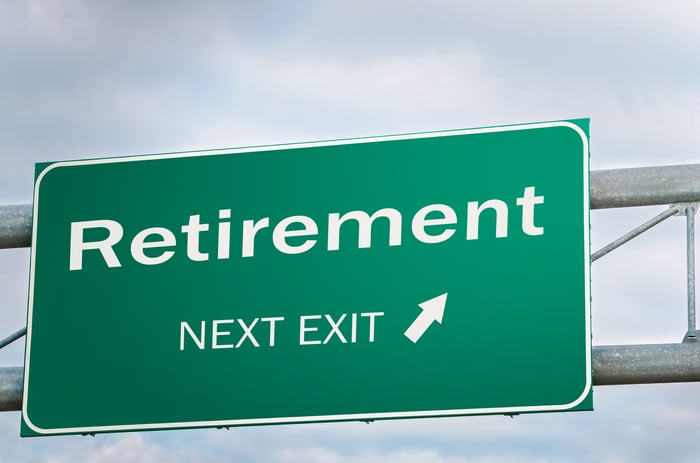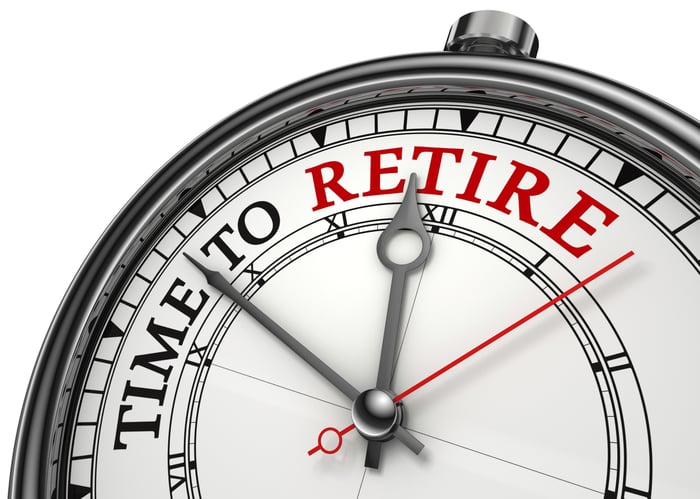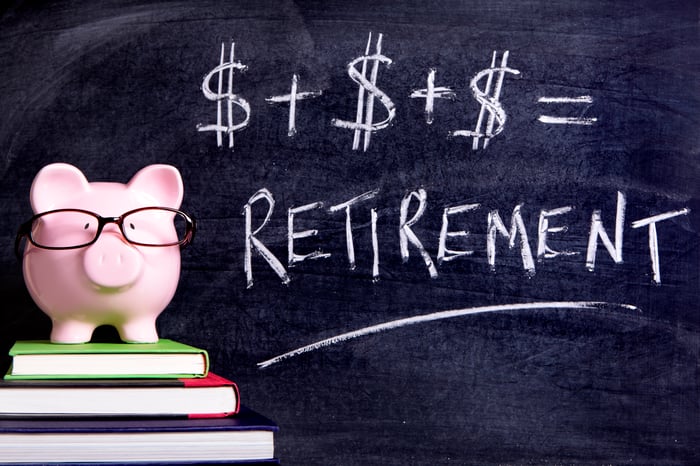Millions of Americans retire each year, and while they may have prepared by saving and investing money in IRAs, 401(k)s, and other accounts, many are still unprepared in lots of ways.
As you think about and approach retirement -- and even if you've already entered retirement -- here are some good things to know. Being unaware of some of them can be rather costly and might jeopardize your future financial security.

Image source: Getty Images.
Scary retirement statistics
Let's set the stage with some bad news. (Fear not, some good news will follow.)
- Many people are not confident that retirement will be comfortable: According to the 2017 Retirement Confidence Survey of the Employee Benefit Research Institute, 39% of respondents are not confident that they and their spouse will have enough money to live comfortably throughout their retirement. That's up from 35% last year.
- Many people have little or no retirement savings: According to the same survey, about 24% of workers said they had less than $1,000 saved for retirement. A whopping 55% had less than $50,000. Clearly, gobs of Americans face severe retirement savings shortfalls.

Image source: Getty Images.
- Most Americans are worried about healthcare costs in retirement. According to a recent Edward Jones survey, about 60% of Americans of varying ages are worried about healthcare expenses in retirement. That may surprising, but it's also quite reasonable. Read on for a statistic that might come as a shock.
- Healthcare costs in retirement can be massive: According to Fidelity Investments, a 65-year-old couple retiring this year will spend, on average, about $260,000 out of pocket on healthcare in retirement. And that's just the average! Many people will spend much more, though many will also spend less. You can increase your odds of spending less by getting and staying as healthy as possible, exercising and eating nutritious foods.

Image source: Getty Images.
Retirements unfold in unexpected ways
Next, it's important to understand that while it's critical to save and plan for retirement, retirement doesn't always happen as planned:
- Most Americans plan to retire after age 65 or not at all. According to the results from the Transamerica Retirement Survey of American Workers, released in late 2016, 56% of women and 59% of men expect to retire after age 65 or not at all. This is worrisome, since the average retirement age was recently 63 -- and the age at which most people start collecting Social Security is 62. This reflects what research has found: that many people are retiring not by choice -- i.e., because of job loss or health setback -- and may not have as big a nest egg as they needed or wanted.
- You may enjoy retirement less -- or more -- than you expect. A 2014 MassMutual survey found that 10% of retirees were surprised to find themselves lonely, bored, with a lost sense of purpose, and/or depressed in retirement. You may be tired of working, but the routine of having a place to go and things to do every day may be serving you well. Fortunately, the same survey found that 72% of retired respondents reported feeling quite happy or extremely happy in retirement.
- Your retirement may last much longer than you expect. If you stop working at 62, for example, and live to 97, your nest egg will need to support you for 35 years! Living to 97 isn't unthinkable. According to the Social Security Administration, 30% of 50-year-old women and 19% of 50-year-old men will live to 90.

Image source: Getty Images.
You can improve your future financial security
Don't think your comfort in retirement is largely out of your hands. There are many smart retirement moves you can make to improve it. For example:
- Save aggressively and invest effectively: It's probably not too late to make a meaningful difference in the size of your ultimate nest egg. Here's how much you might amass over several relatively brief time periods if your money grows by an annual average of 8%:
|
Growing at 8% For: |
$10,000 Invested Annually |
$15,000 Invested Annually |
$20,000 Invested Annually |
|---|---|---|---|
|
3 years |
$35,061 |
$52,592 |
$70,122 |
|
5 years |
$63,359 |
$95,039 |
$126,719 |
|
10 years |
$156,455 |
$234,682 |
$312,910 |
|
12 years |
$204,953 |
$307,429 |
$409,906 |
|
15 years |
$293,243 |
$439,864 |
$586,486 |
Calculations by author.
- Work a little longer. That table shows the value in working just a few more years. Working a bit longer has other benefits, too, such as delaying when you start tapping your nest egg, reducing the number of years your money will have to support you, and perhaps letting you enjoy employer-sponsored healthcare for a bit longer. The strategy can even boost your Social Security benefits.
- Consider an annuity. Relatively few people have pensions to look forward to these days, but you can, in a sense, buy one for yourself, in the form of an annuity. In exchange for a big bundle of money, fixed annuities (as opposed to the more problematic variable or indexed variety) can start paying you immediately or on a deferred basis. Below are examples of the kind of income that various people might be able to secure in the form of an immediate fixed annuity in the current economic environment. (You'll generally be offered higher payments in times of higher prevailing interest rates.)
|
Person/People |
Cost |
Monthly Income |
Annual Income Equivalent |
|---|---|---|---|
|
65-year-old man |
$100,000 |
$558 |
$6,696 |
|
70-year-old man |
$100,000 |
$635 |
$7,620 |
|
70-year-old woman |
$100,000 |
$600 |
$7,200 |
|
65-year-old couple |
$200,000 |
$957 |
$11,484 |
|
70-year-old couple |
$200,000 |
$1,051 |
$12,612 |
|
75-year-old couple |
$200,000 |
$1,189 |
$14,268 |
Source: immediateannuities.com.
- Be strategic about Social Security. You can increase your Social Security checks by delaying starting to collect your benefits. For every year after your full retirement age that you delay starting to collect (up to age 70), your ultimate monthly check will grow by about 8%, giving you the opportunity to increase your benefits by about 24%. On the other hand, if you start collecting early, at age 62, you can expect your checks to be about 30% smaller. That's not so terrible, though, because you'll collect many more of them. And the system is designed to be a wash for those who live average-length lives.
Retirement probably won't be just what you expect it to be, but with some planning and action, it could actually be much better than you expect.




